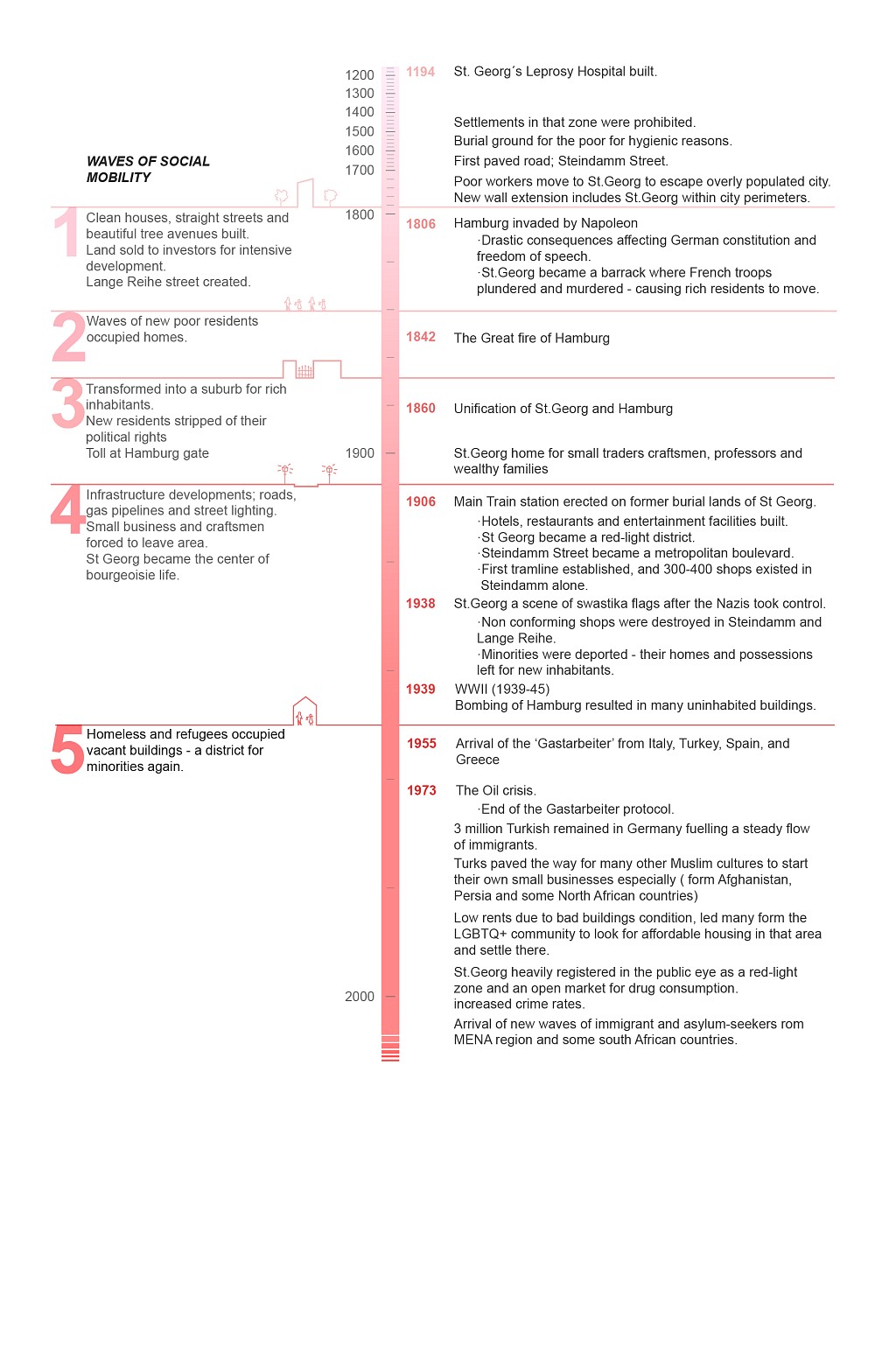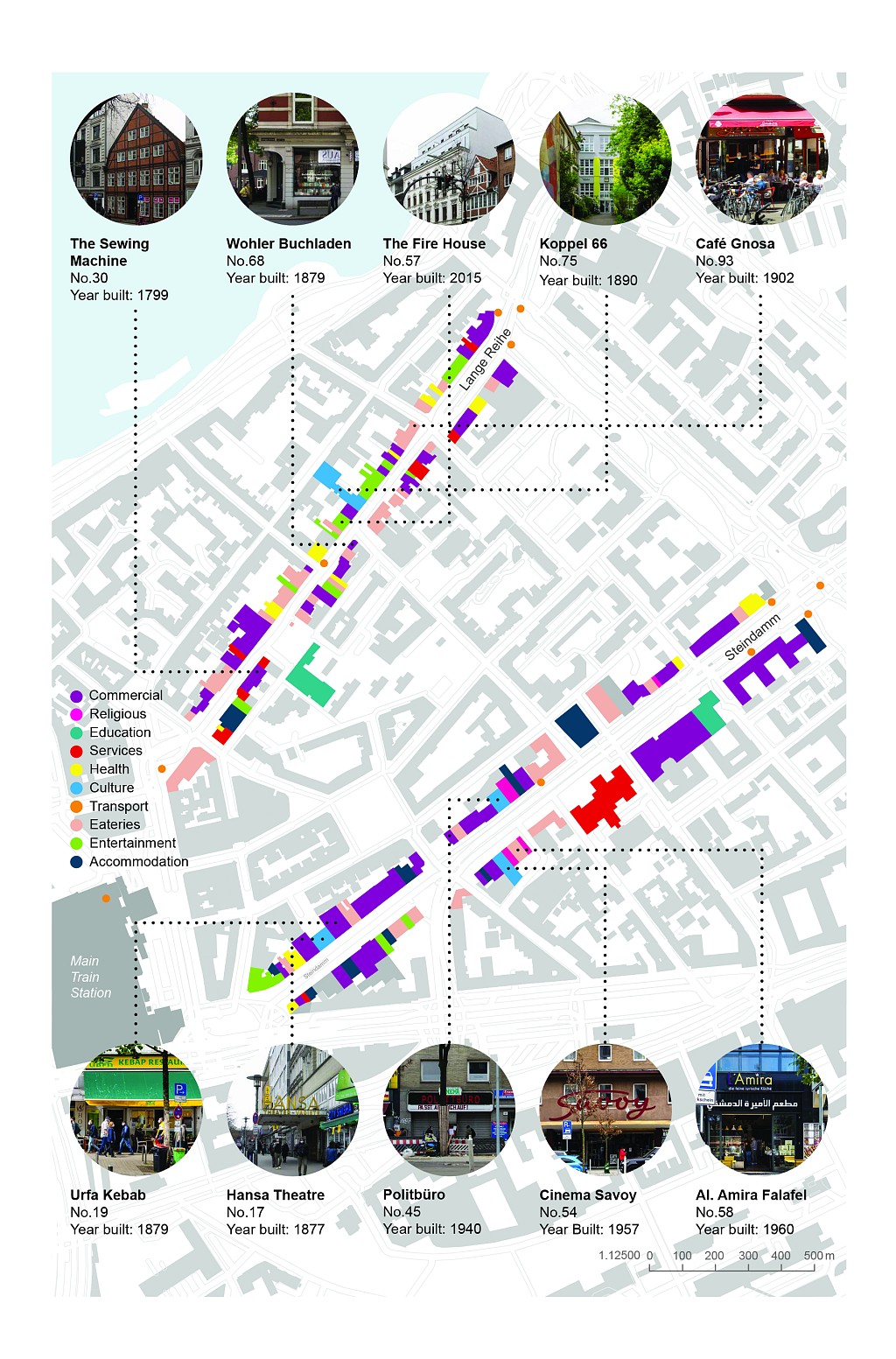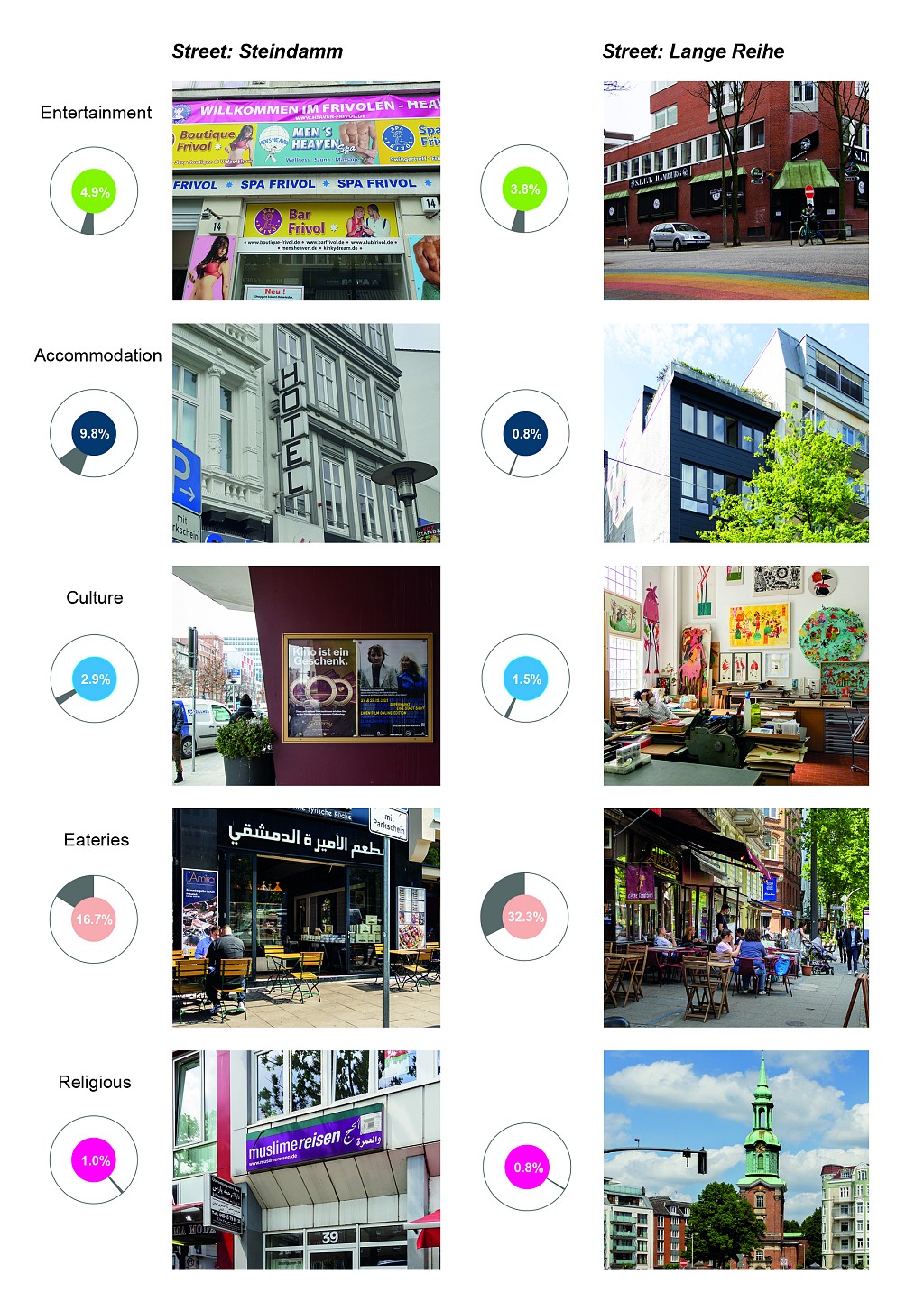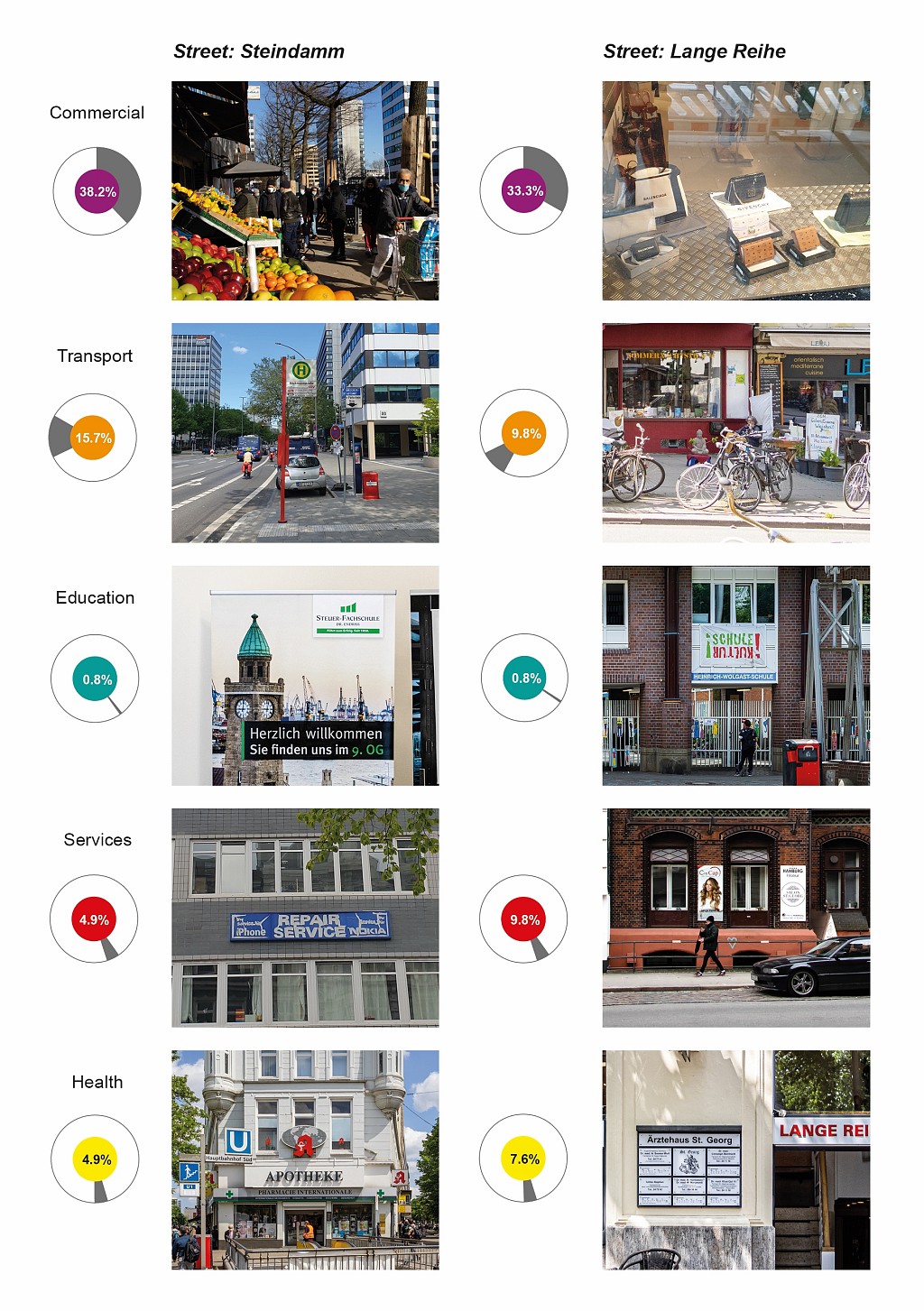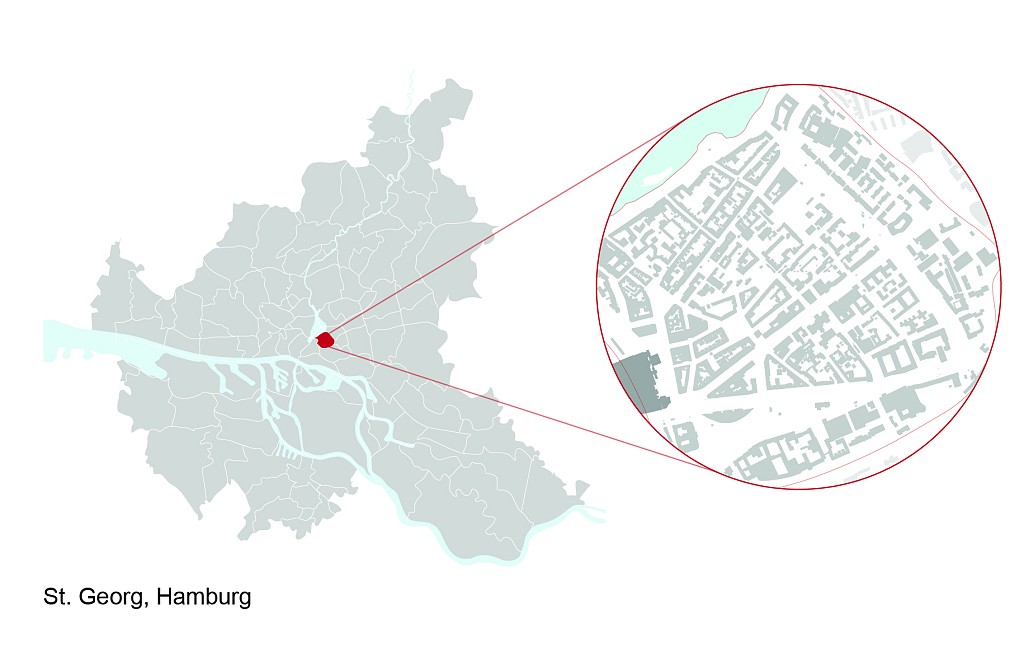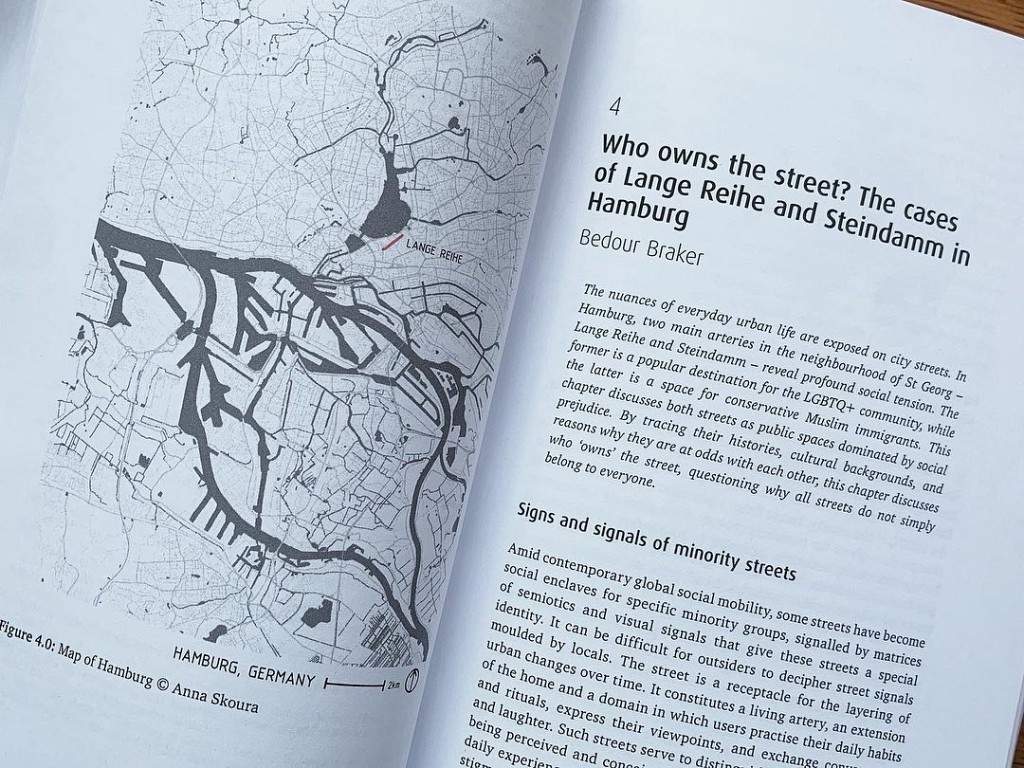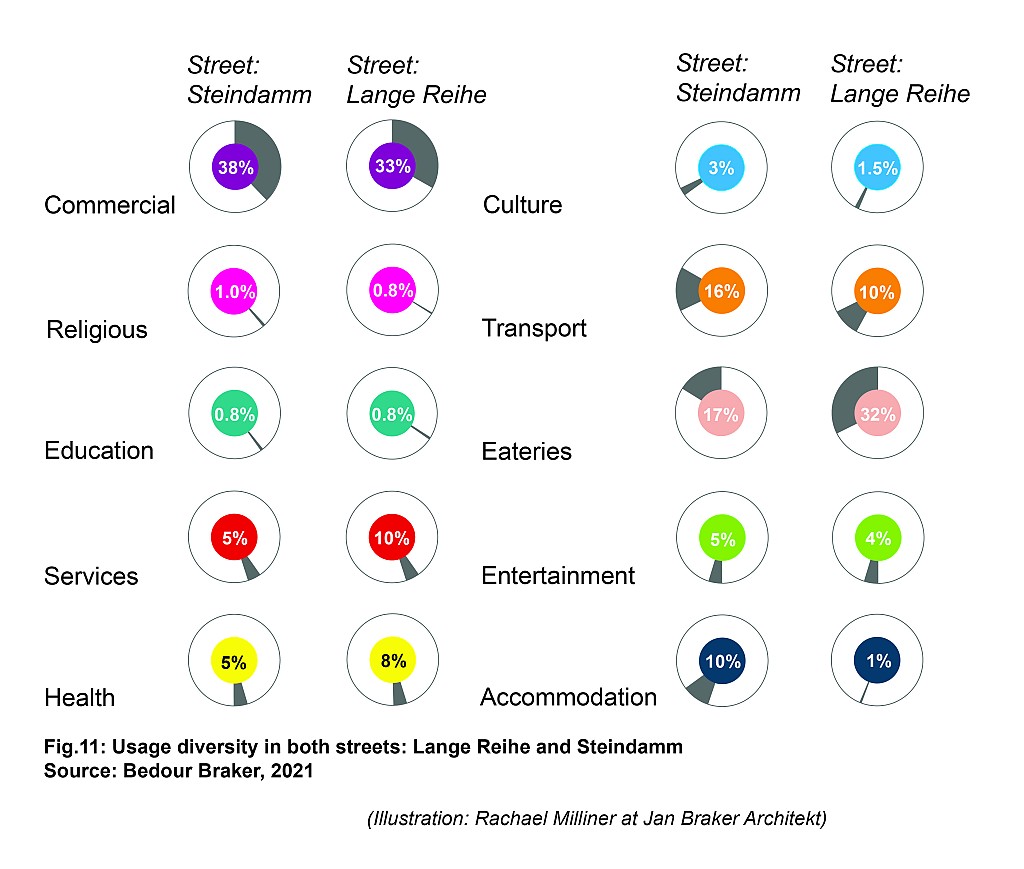Who owns the street? The cases of Lange Reihe and Steindamm in Hamburg
The nuances of everyday urban life manifest vividly on the streets of Hamburg's St. Georg neighborhood, particularly on Lange Reihe and Steindamm. While Lange Reihe thrives as a hub for the LGBTQ+ community, Steindamm serves as a space predominantly inhabited by conservative Muslim immigrants. This chapter critically examines these streets as public spaces marked by deep-seated social tensions and prejudices.Tracing the histories and cultural backgrounds of Lange Reihe and Steindamm, the chapter probes into the question of street ownership and the reasons behind their antagonistic relations. It explores the challenges faced by minority communities in fully integrating into the cultural fabric of their respective streets, considering a multitude of factors such as history, culture, religion, and sexual orientation.Historically, St. Georg has served as a refuge for societal outcasts, embodying multiple layers of social mobility. Through facilitated discussions, this research sheds light on the barriers hindering different minority groups from feeling welcomed in each other's enclaves. It underscores the importance of understanding how individual practices shape the nature of urban streets and the perceptions of their users. Both Lange Reihe and Steindamm have undergone socio-demographic shifts and urban gentrification, often overlooking the needs of residents. Cultural and economic diversity on these streets has led to intersections between different identities, threatened by the rapid increase in land value. The chapter emphasizes the necessity of tracing the social and urban developments of minority groups to foster inclusivity in urban spaces. In conclusion, this chapter advocates for planning practices that prioritize the creation of street spaces conducive to freedom of expression and respectful of the life choices of all inhabitants. It underscores the importance of understanding and addressing the social dynamics shaping urban streets to pave the way for a more inclusive future.
- Location
- UCL Press
- Year
- 2023
- Status
- Book Chapter
- Author
- Bedour Braker, Ph.D.
- Publisher
- UCL Press
- Editors
- Agustina Martire, Jane Clossick, Birgit Hausleitner
- Link
- https://www.uclpress.co.uk/products/211170
